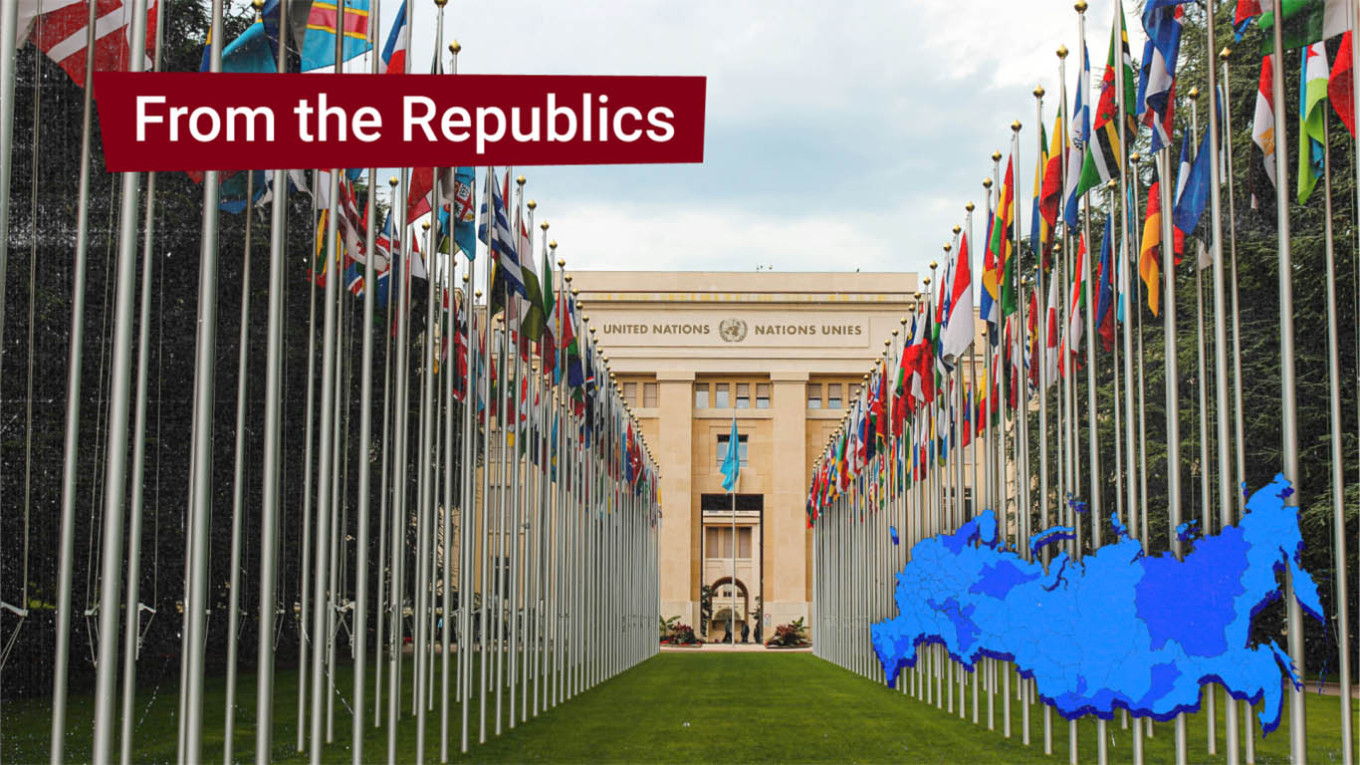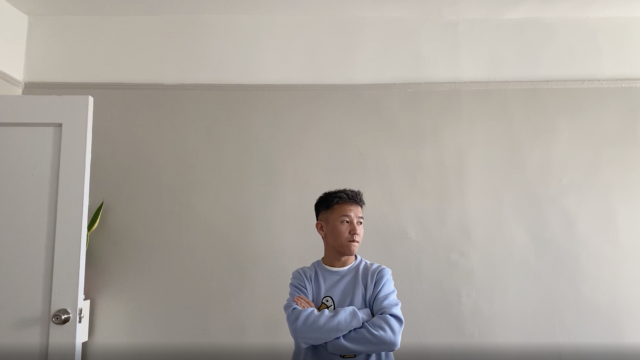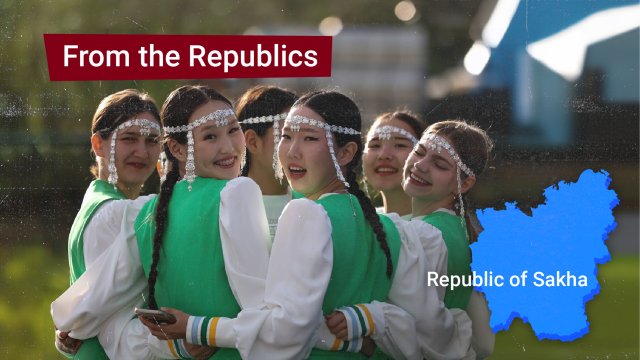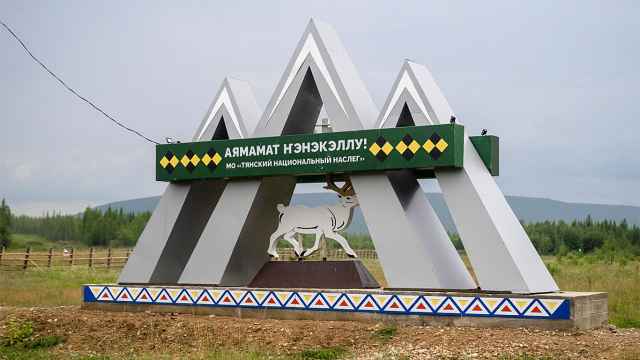When I launched this column last month, I promised to keep my readers up-to-date on the current discourse — or simply the hottest gossip — in the republics. In this edition, I am fulfilling that promise.
This week, all eyes, ears and whispers in Russia’s Indigenous and decolonial activist circles are focused on the 17th session of the UN Expert Mechanism on the Rights of Indigenous Peoples (EMRIP) that started in Geneva on Monday.
While Indigenous and ethnic minority activists from Russia are under no illusion that today’s UN is a largely dysfunctional institution in desperate need of reform, they also recognize that it holds some of the few avenues for political engagement and visibility currently available to them.
Unfortunately, the Kremlin appears to have become acutely aware of the latter fact as well. That’s how things became very tricky.
Last month, Vika Maladaeva, a Buryat activist and co-founder of the Indigenous of Russia Foundation, sent me a perplexed-sounding text, saying she had received two contradictory emails from EMRIP’s secretariat.
The first email informed her that her participation in the 17th session had been approved. The second — received just minutes later — backtracked on that approval.
Maladaeva was not the only anti-war Indigenous activist rejected from the session. Sakha activist Viliuia Choinova and Buryat activist Marina Khankhalaeva were also refused seats at the table.
“I definitely didn’t expect such an outcome from my application,” Choinova told me. “I was already drafting my speech.”
Weeks later, the UN still has not responded to activists’ requests to clarify the reasons behind their rejection.
“I have a suspicion that Russia was behind this decision,” Pavel Sulyandziga, a veteran Indigenous activist who has been working with the UN for decades, told me. “EMRIP is one of the few UN agencies where Russia still holds influence.”
Like other activists I know, Sulyandziga said he believes that the Kremlin was trying to pull all strings possible to ensure that Russian representation at EMRIP would consist only of loyal Indigenous activists such as members of the Russian Association of Indigenous Peoples of the North (RAIPON) and KMNSoyuz, which is backed by Russian mining giant Nornickel.
It appears that Moscow has nearly gotten its wish as Shor activists Yana Tannagasheva and Vladislav Tannagashev are the only anti-war Indigenous activists from Russia present at this week’s session.
Last year, Tannagasheva was verbally harassed by Russian representative Sergey Chumarev during the plenary session of EMRIP after she delivered a speech on the exploitation of Shor Indigenous lands by the Russian state and coal mining developers.
The controversy surrounding Russia’s participation in EMRIP must not be dismissed as mere gossip, but instead treated as a red flag pointing to the lengths that the Kremlin is ready to go to realize its ambitious geopolitical pivot to the so-called Global South.
The Soviet legacy of supporting decolonial movements across South America, Africa and Asia, combined with the overwhelming presence of Kremlin-backed Indigenous activists on the international stage, have allowed Moscow to maintain seemingly friendly relations with the global Indigenous rights movement thus far.
The presence of independent Indigenous activists willing to expose Russia’s crimes against its minorities in structures like EMRIP poses a real danger to this bond.
Take, for example, Maria Khankhalaeva’s impassioned speech at this year’s UN Permanent Forum on Indigenous Issues in New York, which exposed disproportionate casualties among non-Slavic minorities fighting for the Russian army in Ukraine and was met with overwhelming praise from international delegates.
Yes, we currently lack any direct evidence that Russia is possibly engaging in corrupt practices to safeguard its position at the UN. But if such evidence ever emerges, I would not be surprised in the least.
After all, I am still trying to understand how Ilsur Metshin, the mayor of Tatarstan’s capital Kazan and a vocal supporter of the invasion of Ukraine, could be re-elected president of the UN Advisory Committee of Local Authorities (UNACLA) several months into the war.
A Message from The Moscow Times:
Dear readers,
We are facing unprecedented challenges. Russia's Prosecutor General's Office has designated The Moscow Times as an "undesirable" organization, criminalizing our work and putting our staff at risk of prosecution. This follows our earlier unjust labeling as a "foreign agent."
These actions are direct attempts to silence independent journalism in Russia. The authorities claim our work "discredits the decisions of the Russian leadership." We see things differently: we strive to provide accurate, unbiased reporting on Russia.
We, the journalists of The Moscow Times, refuse to be silenced. But to continue our work, we need your help.
Your support, no matter how small, makes a world of difference. If you can, please support us monthly starting from just $2. It's quick to set up, and every contribution makes a significant impact.
By supporting The Moscow Times, you're defending open, independent journalism in the face of repression. Thank you for standing with us.
Remind me later.








